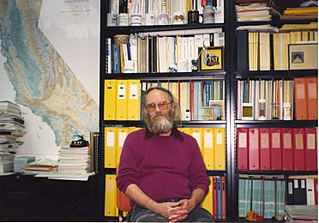A Quote by Ai Weiwei
So maybe there are three parts in my life - earlier background living in exile in Xinjiang in a very political circumstance, then later the United States from 24 to 36 years old. I was quite equipped with liberal thinking. Then the Internet. If there is no Internet, of course, I cannot really exercise my opinion or my ideas.
Related Quotes
The anonymity issue is a big question. As long as people can disguise cyber attacks and as long as there is a sort of question mark over who is responsible, then the problem will continue to exist. And of course what happens in response to that is that there is a move to try and refashion the Internet so that anonymity is impossible, which of course leads to fears among all sorts of groups - civil rights groups, NGOs, and political parties - that the Internet is going to be used simply as a method of control. So these are very sensitive issues.
When I was 8 or 9, I started using bulletin board systems, which was the precursor to the Internet, where you'd dial into... a shared system and shared computers. I've had an email address since the late '80s, when I was 8 or 9 years old, and then I got on the Internet in '93 when it was first starting out.
I think that we're at an alarming moment in American political development and maybe in world political development, because the United States is so influential. If the trends of the last thirty or forty years are not halted and reversed - and those trends include increasingly inequality, a crumbling public life, a disintegrating public infrastructure, an exhausted ecology, and a huge war arsenal, and more and more war making - then I'm rather gloomy about the prospects for the American future and the harm that the United States could do to the world.
My life is split in three parts; I don't know the percentage. One could be called "chess" - the Kasparov Chess Foundation, promoting the game, training young players, playing on the internet, sometimes exhibitions. The second area would be "writing" - books, articles, Twitter, Facebook. And then "political activity" - fighting for human rights and democracy, so TV, interviews, speeches.
It is true that authoritarian governments increasingly see the internet as a threat in part because they see the US government behind the internet. It would not be accurate to say they are reacting to the threat posed by the internet, they are reacting to the threat poised by United States via the internet. They are not reacting against blogs, or Facebook or Twitter per se, they are reacting against organizations like the National Endowment for Democracy funding bloggers and activists.
I have looked at public opinion polls in France in the late 1940s and early 1950s during the height of Marshall Plan aid. They had a very negative attitude towards the United States then. There were negative attitudes towards the United States because of Vietnam. There were negative attitudes about the United States when Reagan wanted to deploy intermediate range ballistic missiles. I don't think the president should base his foreign policy on American public opinion polls, let alone foreign public opinion polls.
I'm over here with the French counterterrorism experts talking about the 'Charlie Hebdo' case, how we can stop foreign fighters from coming out of Iraq and Syria to Europe, but then we have this phenomenon in the United States where they can be activated by the Internet, and, really, terrorism has gone viral.
I think they called me the closest thing to a God of the Internet. But at the end, that article wasn't very complimentary, because the author suggested that I wasn't doing a very good job, and that I ought to be replaced by a "professional." Of course, there isn't any "God of the Internet." The Internet works because a lot of people cooperate to do things together.
Mexico has many more kidnappings than the United States. The U.S. has very few kidnappings.The reason is, in the United States, we don't pay ransom. We turn it over to the FBI. They catch the person. And then, of course, we used to have the death penalty for it. Now it's life in prison. In Mexico, everybody pays. It's a business.






































